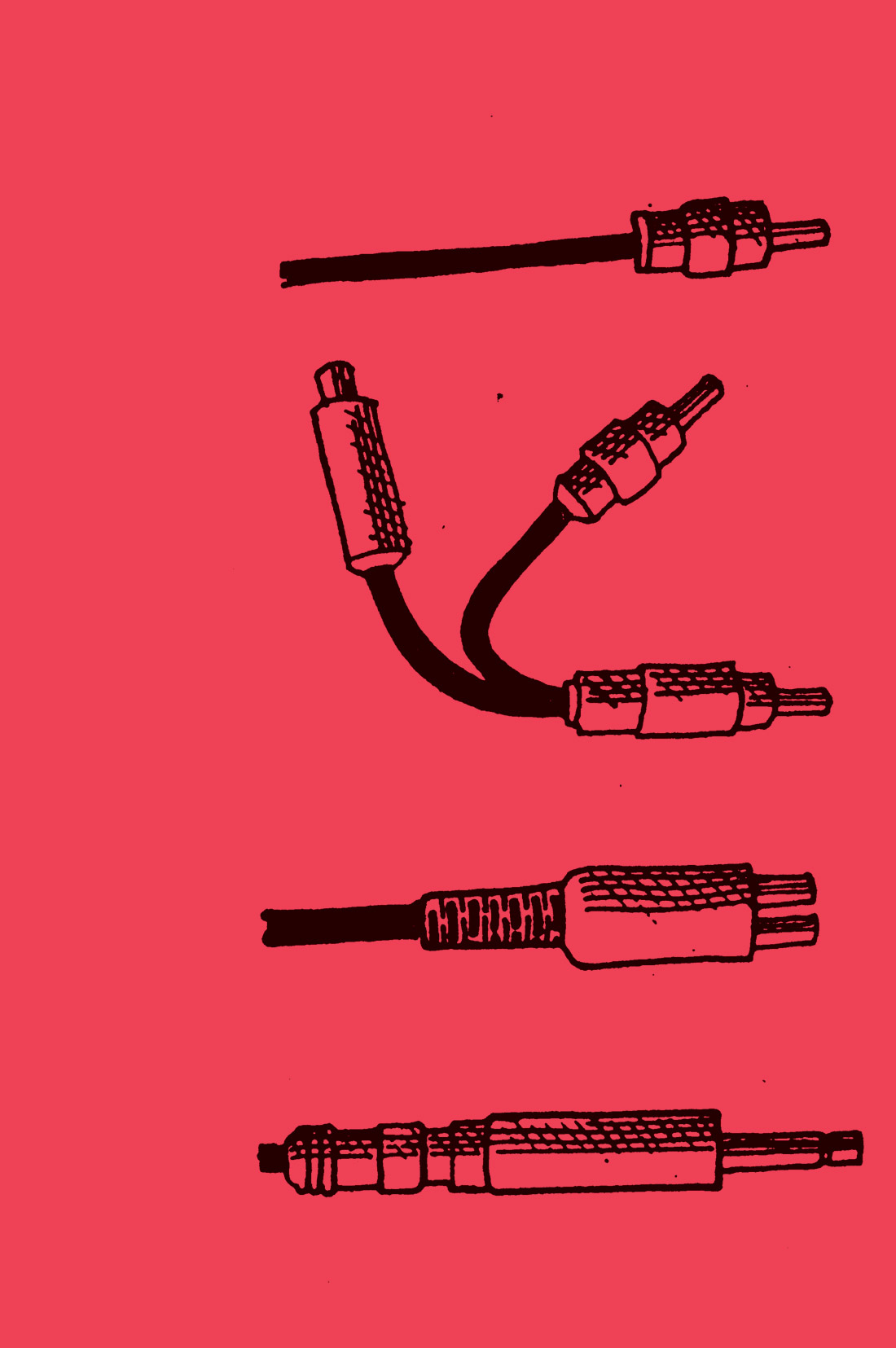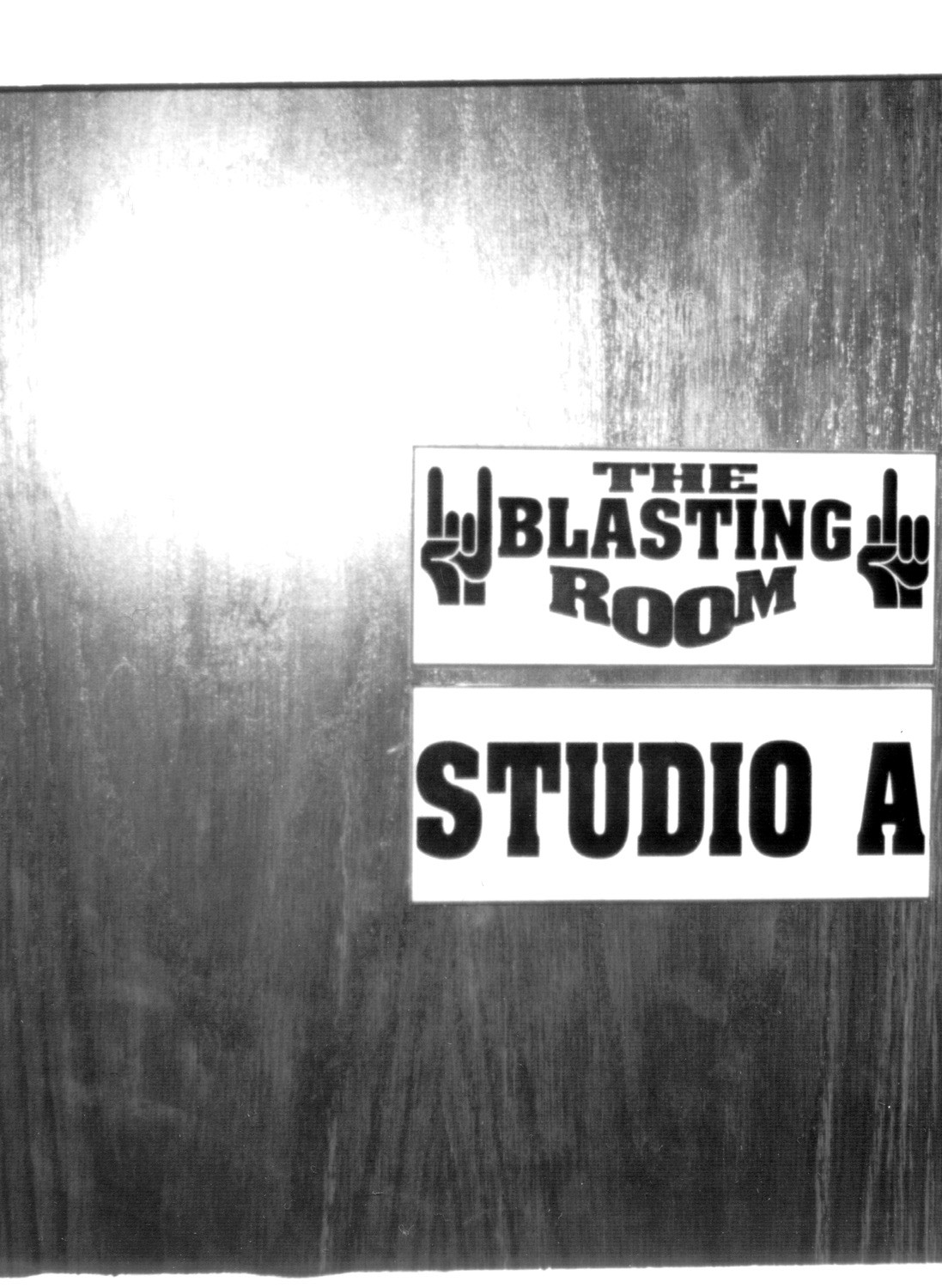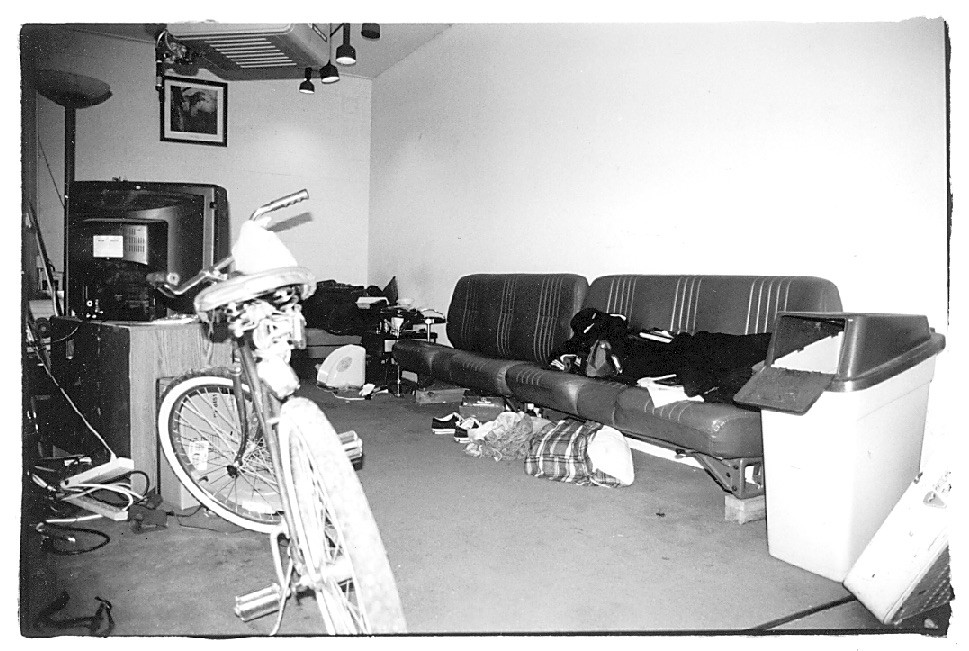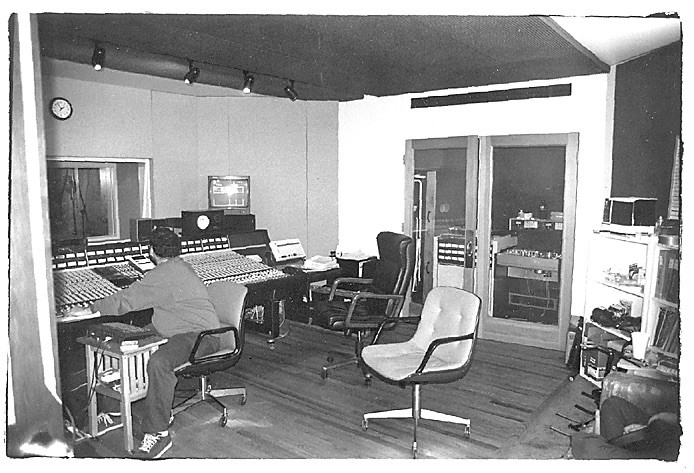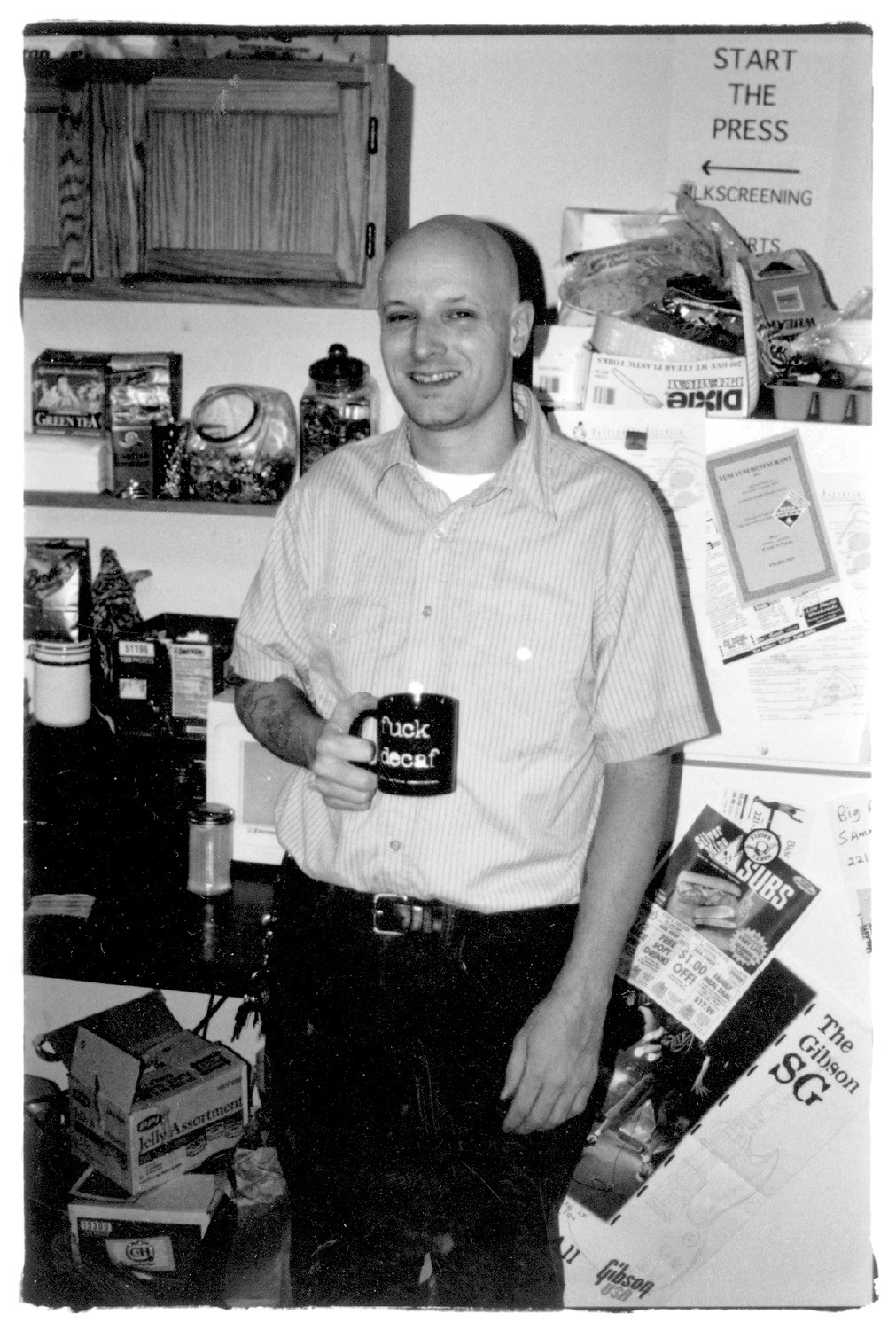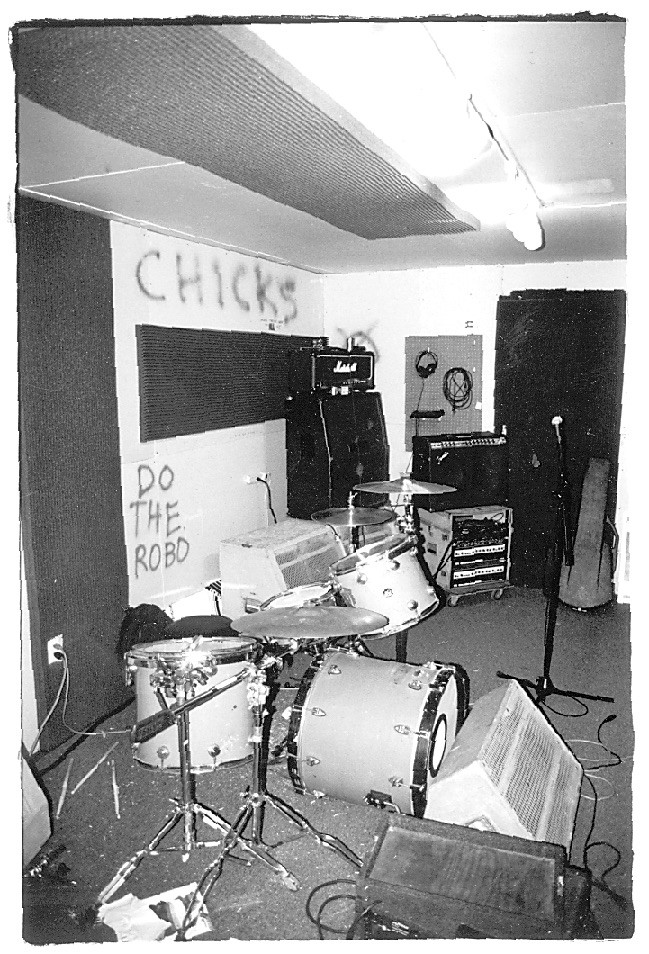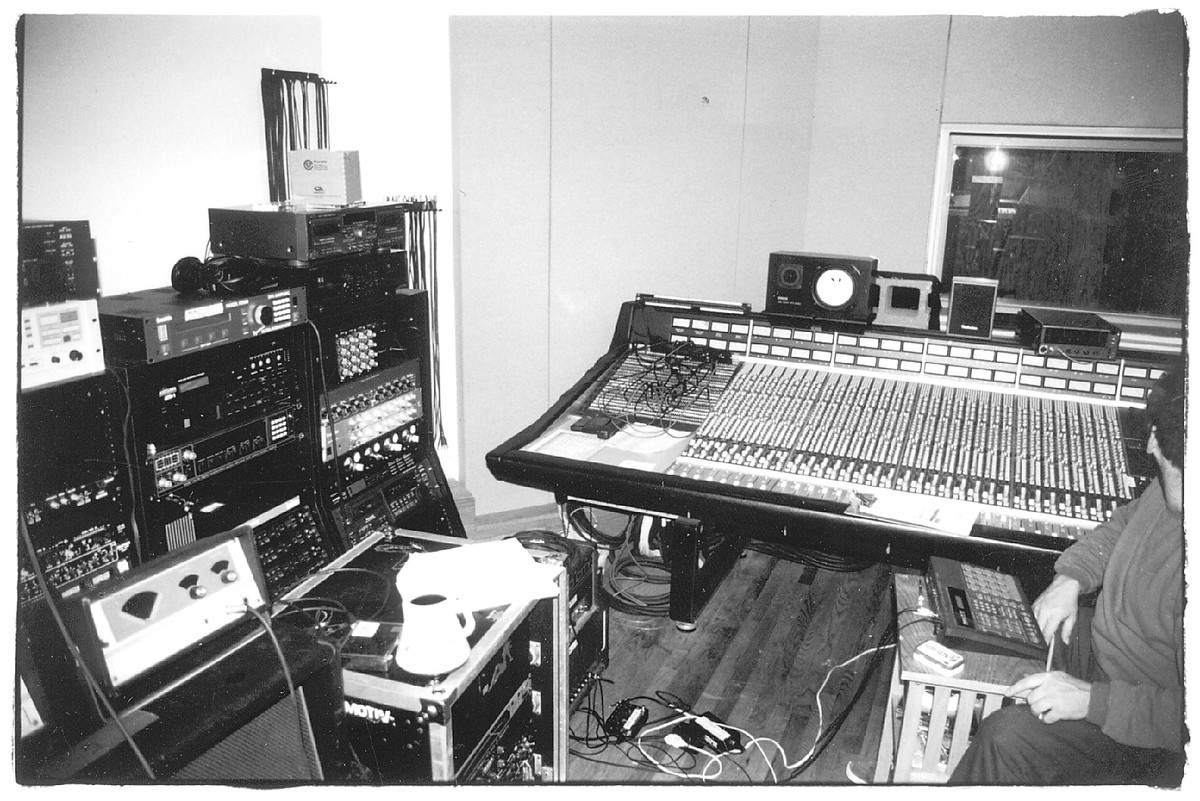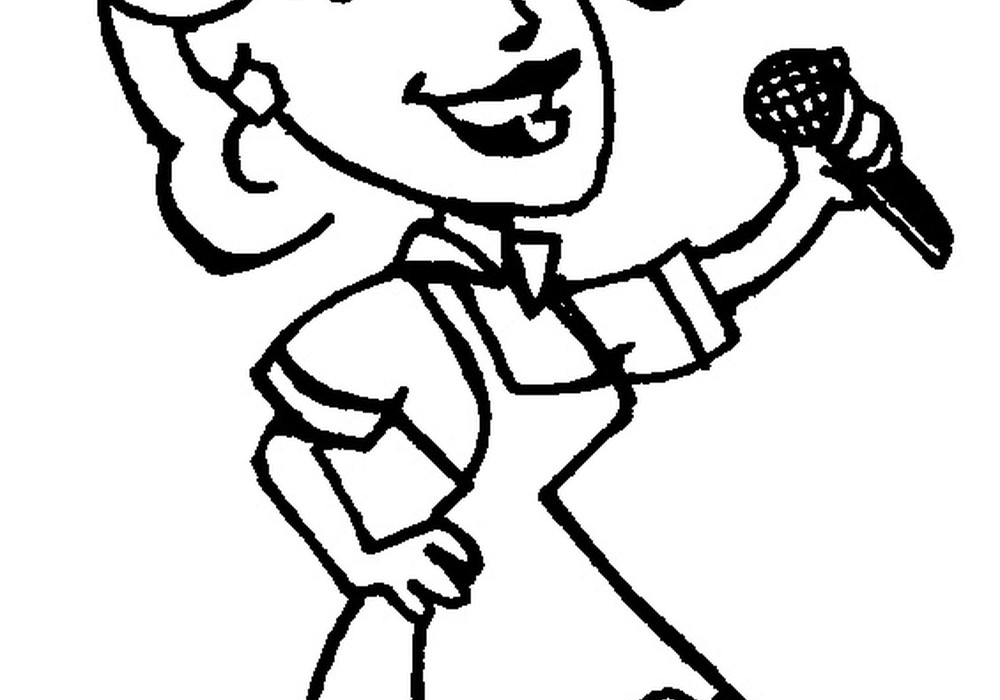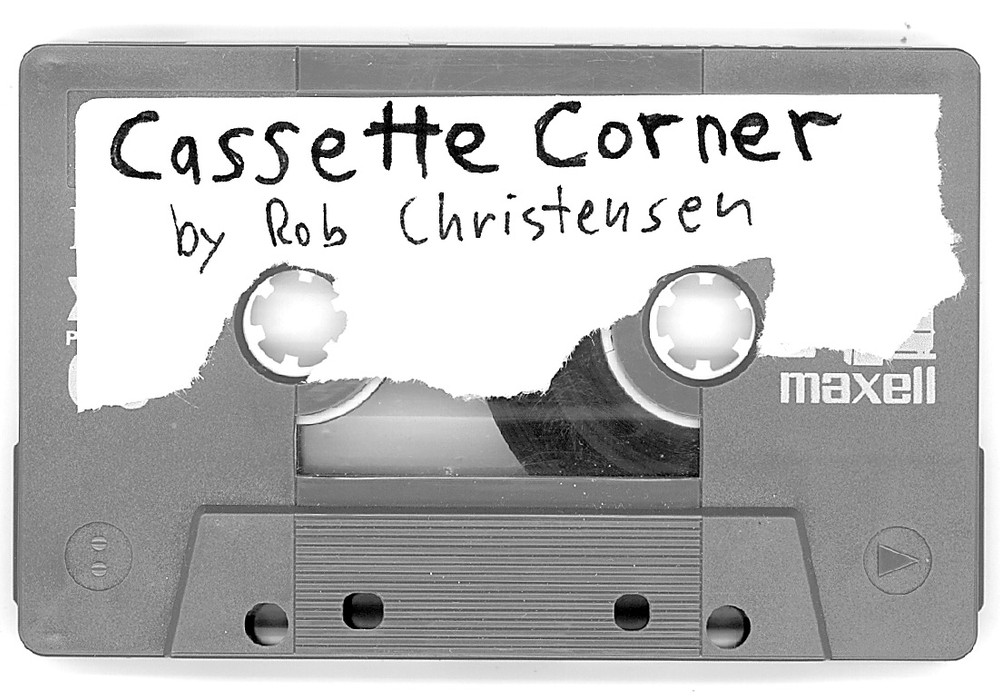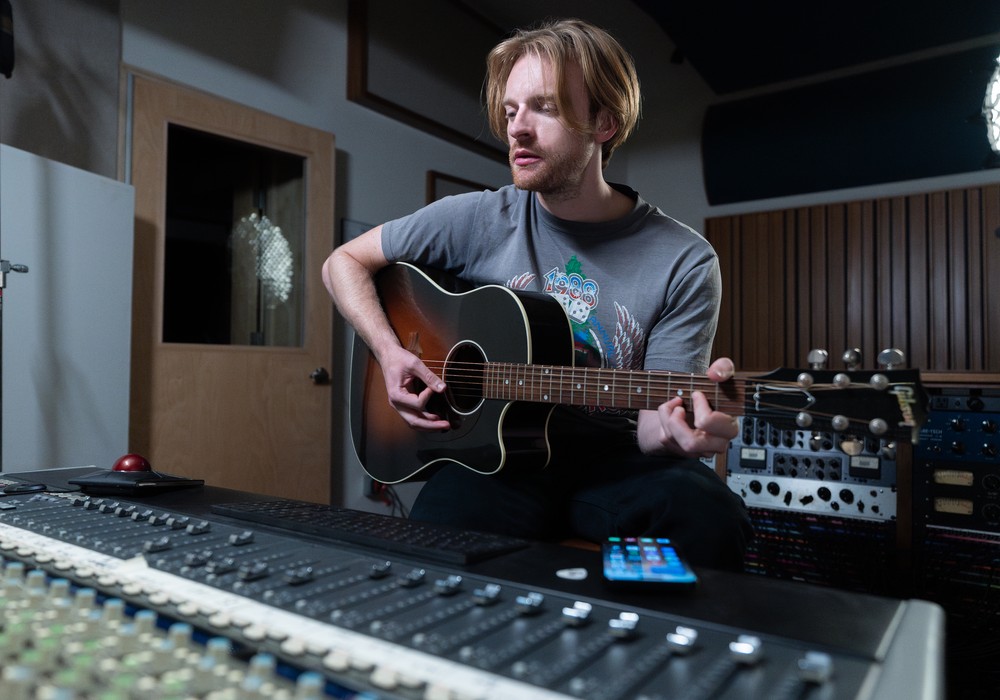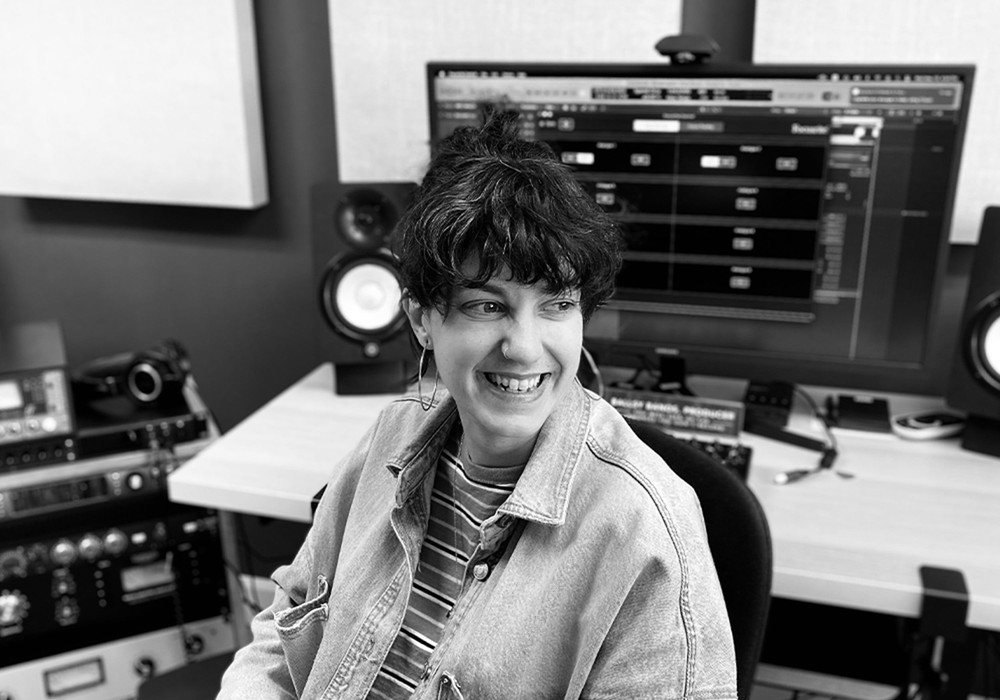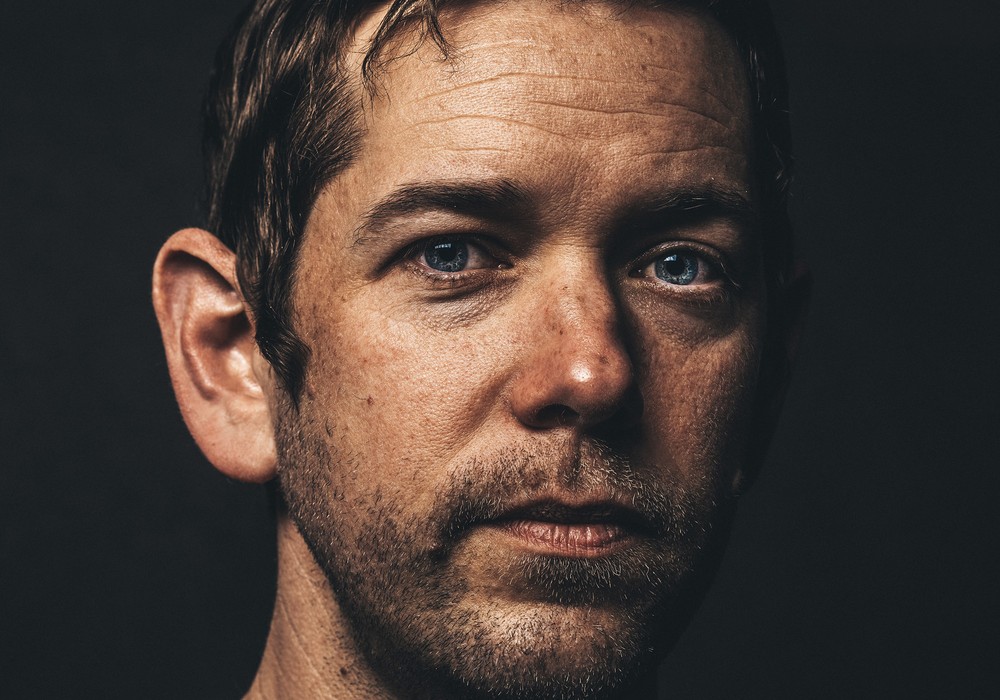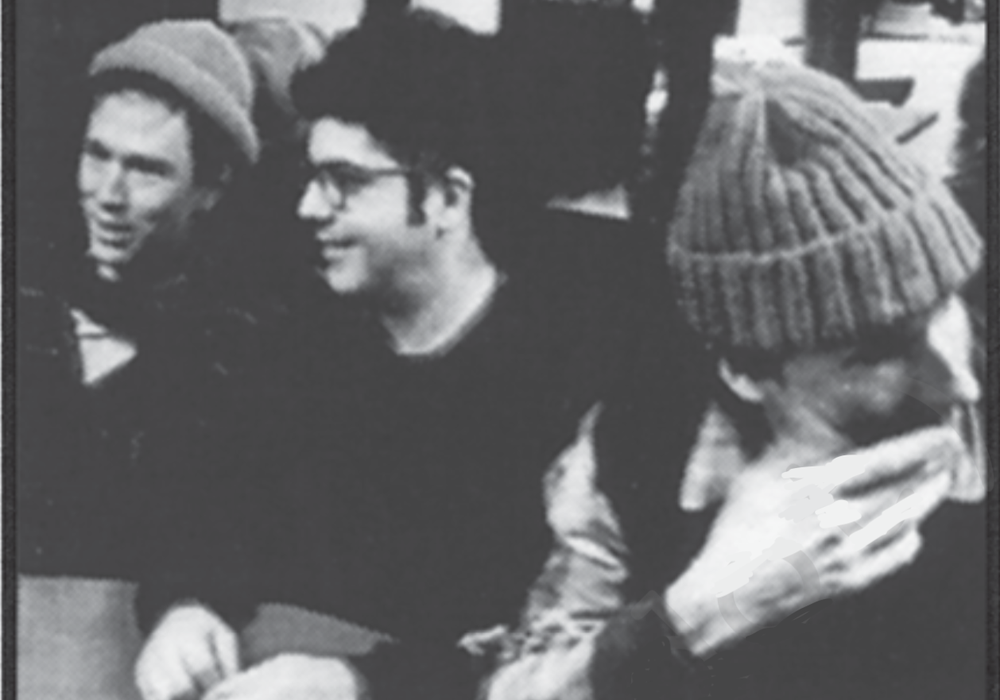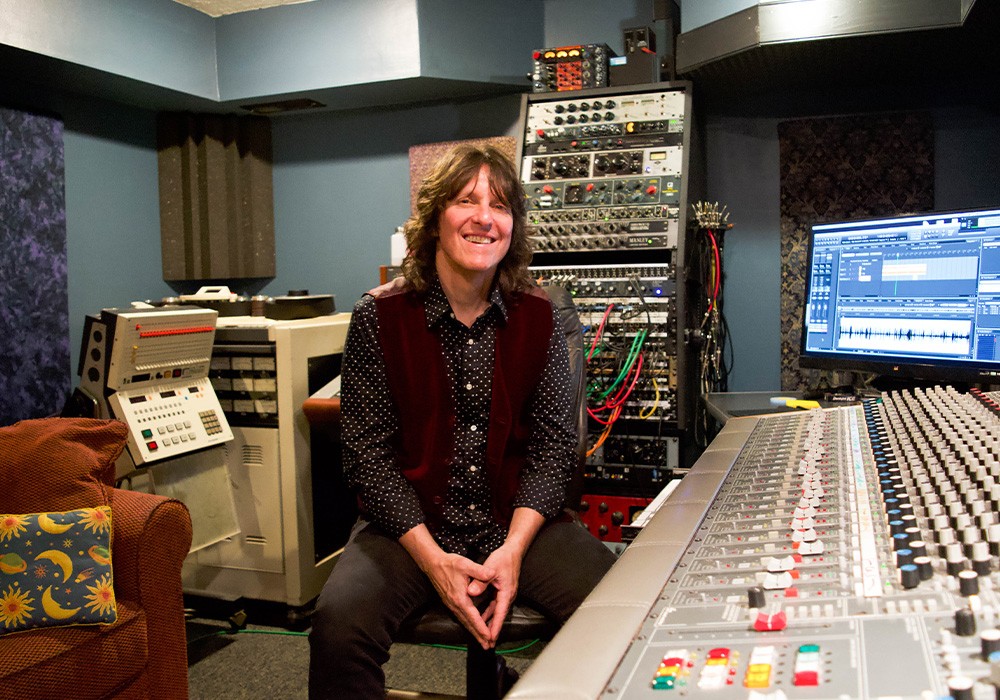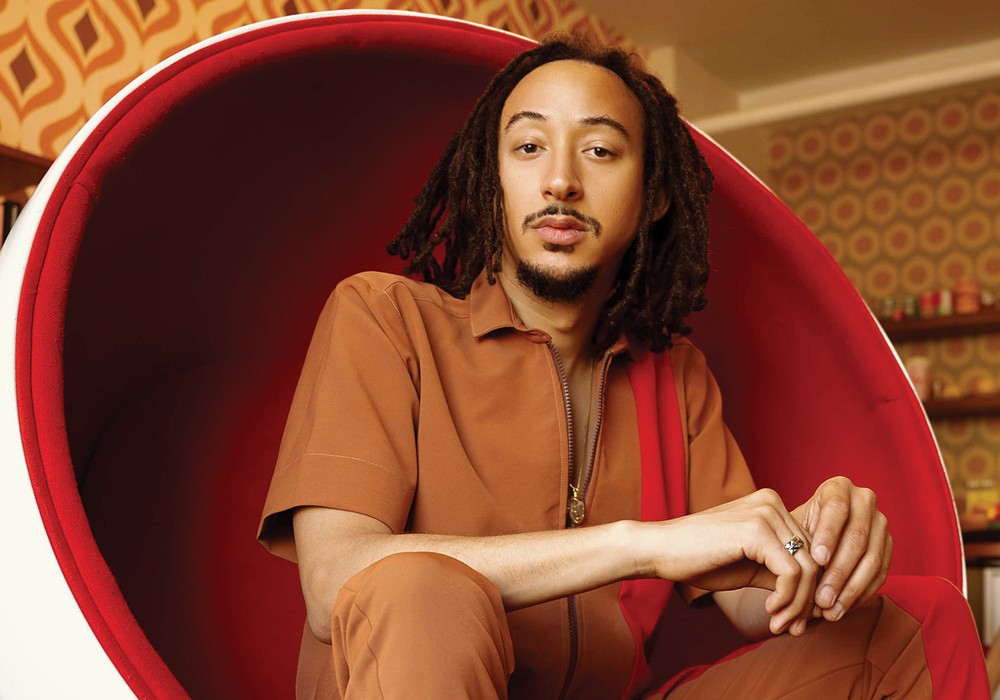The Descendents, and subsequently ALL, are the manifestation of what I like about punk rock and music in general: energy, humour, and musicianship above everything else. This group of guys have changed the way that punk is played, infusing the idiom with interesting arrangements, strange time signatures, and a keen sense of melody. Stephen Egerton has prospered alongside the freneticism of bassist Karl Alvarez and drummer Bill Stevenson. As a guitar player, he has developed a singular angular approach and an eccentric harmonic imagination in a genre of music which can be intolerant to either of these attributes. Egerton and his ALL/Descendents cohorts have toured incessantly since the middle of the 1980's. They have remained steadfast in their commitment to their music, weathering yet another rise and fall in the popularity of punk rock and a major label debate. ALL have emerged stronger as a result, releasing two of their finest records (Descendents — Everything Sucks & ALL — Mass Nerder) with their new label, Epitaph. For Mr. Egerton, the last few years have seen a move to Fort Collins, Colorado, co-ownership in a 24-track analog studio (The Blasting Room) with members of ALL/Descendents and ex-members of Black Flag, the launching of a new label (Owned & Operated Records), and the continuation of a prolific engineering/producing relationship with ALL/Descendents drummer Bill Stevenson. Normally reticent about doing standard band interviews, I found Mr. Egerton extremely affable and very willing to share his thoughts on the subject of studios and the recording process. In retrospect, I think our conversation was analogous to the never-ending argument between analog and digital. That is, analog is continuous, digital is discrete. We spoke on a cold Toronto evening about the importance of getting good performances rather than a series of disjointed musical chunks, and the general lack of this kind of recording occurring within the industry today. Here's what made it on to tape.
I wanted to ask you first about your early studio experiences at Radio Tokyo. What was the setup like in there?
Radio Tokyo was the first studio that I worked at that wasn't just a small 8-track studio in somebody's house. The Descendents, before I joined, did the Enjoy record there, and then I joined and we did the Descendents ALL record there. They mostly did demo work there and managed to build up over the course of a few years. The guy who owned the place was a keyboard player in Blue Cheer at one point. Interesting history the guy had... I believe it was Blue Cheer. He put this place together. It was just a very small house, totally dead, carpet-covered walls, and no windows just a few blocks from the beach near Venice Beach, California. It was a very strange setup. By the time I got there, it had graduated recently from a 2 inch/16 track 3M format to a 2 inch/24 track 3M format. That machine was a nightmare. They were always kicking the cards to try and get it to work right. That's very much the kind of studio it was — very seat-of-your- pants kind of studio. I wouldn't even be able to tell you the name of the board, but the board was really funny. It was a 20 channel board designed to work with a 16 track machine and have four extra rails left over. They had this funny little really shitty line mixer thing that they would use for the other tracks for bringing up effects. The patch bay you had to punch every once in a while to keep it working. They had a PCM-70 [Lexicon outboard unit].
That's a pretty nice piece of gear to have in that kind of studio at that time.
Yeah, they had some nice outboard gear — that was the thing. They had a couple of UREI EQ's that were decent, they had some [UREI] 1176 compressors, some pretty decent stuff.
Sounds like they blew all their dough on outboard gear.
Well, the stuff just built up little by little over time and their place was the kind of place where microphone selection was, you know, more or less like this is the vocal mic...'[laughs]. U87's, and then a couple of SM-81's probably, that kind of stuff. So it was very, very basic. Everything was played in the same room with a bunch of baffles. The control room was only slightly larger than this truck we're sitting in. Personally, I was only involved with one record that we did there, but later on I did record some other bands. I did a little bit of recording for Gwar there once.
For Gwar?
Yeah, it was something that never ended up coming out. It was supposed to be for a Sub- Pop singles compilation. They ended up signing their major deal and the thing never actually came out. I'd always wished I could hear it 'cause the drummer that played on it (they were in between drummers) was really excellent. The guy that ran Radio Tokyo, Ethan, and another guy, Richard Andrews, who we worked with on many records after that, they both had very good ears and had really learned to maximize what they had equipment wise. I think they did a really good job as engineers. Richard and our drummer, Bill Stevenson, really taught me how to engineer. Richard knew more technical stuff than Bill did, but Bill had been involved in tons of records dating all the way back to the Black Flag records that he'd been with and the early Descendents records. He'd always had his hands pretty deep in the recording process. They did that Minutemen Double Nickels on the Dime record which is, to me, just a really very plain, nice, natural sounding record — very cool. It's not bombast or kick-ass sounding, but it's just a good straight- ahead plain recording. I really like some of the stuff that was done in Radio Tokyo.
Do you know what the Ride the Wild 7" [first Descendents release in 1978] was done on?
Ride the Wild, I believe, was done on 16 track/2 inch in...
...the worst of conditions?
Yeah, in like four hours. I mean, it was literally just throw the mics up and that was it. I know they spent a little more time on Milo goes to College. I don't know too much about the specifics of that recording. Spot, who worked on a lot of the early SST recordings, engineered the Milo Goes to College record.
When you moved from Radio Tokyo, how did you decide on using Richard Andrews to start doing the ALL records for Cruz?
Well, this guy Ethan primarily ran Radio Tokyo and did most of the recording. Richard was more like a junior engineer kind of a guy who had learned largely from Ethan. During the Enjoy sessions, I think Ethan got sick and Richard came in and started doing some work. Billy [Stevenson] felt comfortable with him and they got to be friends. We'd developed a good relationship with Richard, so we did the Descendents ALL record with him. We decided to try to move up into maybe a little nicer studio. The next place we went to work was called Third Wave in Torrance, California. It's now gone as is Radio Tokyo. The Third Wave studio had been there a long time.
Was it a nice 'normal' studio?
Yeah, it was definitely built to be a studio. It was an old style studio, very dead rooms, but big. It had a lounge. It was more like a regular kind of a studio.
Did it have a vocal booth?
Not really. They did have a couple of isolation booths, but pretty much everything was done in the main big room. It was maybe a 20 foot by 15 foot room or something. Maybe even a little smaller. They had a better selection of microphones than we had been using. We'd seen our first [AKG] 414.
Did you start experimenting with mics?
Yeah, 'cause at Radio Tokyo the SM-81's were THE cymbal mics [laughs]. Everything else was [Shure SM] 57's and an [EV] RE-20 for the kick. It was very straight ahead in that way. Third Wave had a little bit more variety that way. They had a couple of Neumann microphones and several AKG microphones.
It was a very dead room. We were still recording things very dry because that was our ethos anyway.
I was going to ask you about that [very dry, tight sounding records are a trademark of the band].
During the 80's there was a lot of reverby, overblown production stuff that didn't make any sense when you were playing as fast as we were going. It didn't really add up.
Allroy Sez [first ALL recording] was pretty reverby.
Everything was experimental for us at that point, so we tried it on that. We've been back and forth through that whole thing a lot of times [laughs]. Our records were very much a testing ground for us. We recorded some live records for the Descendents. We did one in Berkeley, California (Hallraker) and one in Minneapolis (Liveage). We decided to go into a little better studio to mix them, which is how we got to Third Wave. Third Wave had a Harrison console, which wasn't too bad for time, and a JH-24 MCI 24 track tape machine mixed to 1/2 inch Fostex. They had a PCM-70. They had a nicer console than Radio Tokyo, but maybe not as nice as selection of outboard gear as Radio Tokyo.
Did you start using gates and some of the more advanced outboard stuff at that time?
They had been experimenting with gates going back pretty far. We were using noise gates on Descendents ALL and they used them on Enjoy and on a few songs on Milo goes to College. I didn't know anything about that stuff until we got to Third Wave. That's when I started asking, 'What does this do?'. They had a couple of Drawmer gates and a bunch of Gatex gates, which we started using pretty heavily. Gates were always a part of the process for us.
If you did stuff live off the floor, how did you get everything so separated?
Yeah, we were nuts about that stuff. Plus, we were recording in really dead rooms and ambient room mics just didn't matter. We sought that really isolated thing in a lot of ways. We learned about mix compression and just started using a lot of compression all the way around. We knew about Steely Dan. We didn't aspire to having really awesome production, but we would try to compare things from time to time to use as a reference point. For us, when we were kids, Steely Dan was like the highest order of recording.
Where they would spend a week moving their chair around at $200 an hour.
[laughs] Yeah, exactly. They still sound pretty good. Those records still have quite a bit of chutzpa to them for the time. We knew they were compressing every channel. You know what I mean? We were definitely guilty of really overusing compression on a number of things we did. We'd really go overboard. All of ...Sez, ...Prez, ...Saves, ...Revenge, and Trailblazer were done at Third Wave as well as the Doughboys Home Again record. We also mixed a Big Drill Car record there that we had recorded at Radio Tokyo with Richard [Andrews]. After all of that stuff, we moved away from Los Angeles to rural Missouri. Our next record, Percolater, was recorded at a studio similar to Third Wave, it was a legit studio built to be a studio. The guy that ran the place was an older guy. He could cut his own vinyl and had a ton of ancient equipment in there that I had never seen before. Most of the work that they did there was advertising work. This place was called Chapman, a very small studio. We tracked all the Percolater stuff there. We rented some Focusrite mic preamplifiers and EQ's and tracked through that stuff. They had a Neotek console and a old Studer 2-track machine there and quite a bit of good outboard gear. We didn't get to use a lot of it because we were just tracking. We decided that we would try mixing some of our stuff, like singles, in a really good studio as an experiment for Bill and I.
There were songs that you mixed separately from other ones?
No, it didn't work out that way. That was the theory at the time.
Do you remember which songs you were thinking of doing that with?
Not really, maybe Hotplate would have been one of them at the time We thought that was kind of funny. Dot I think was maybe going to be one. What ended up happening is I started calling around and going through MIX magazine to find out where the nearest studios were. The closest good ones were in Nashville, Memphis. We were getting packets and client lists from all of these studios. These guys all had Neve consoles and SSL consoles, stuff I'd just started reading about. It just seemed like whoah... this heavy thing. I had been recording for years before I even laid eyes on one of these consoles. Ardent were willing to work with us within our budget to try and make it possible for us to come down there to do some stuff. We didn't know anybody there, so we brought an engineer with us. He had worked on an automated console and was the only person we knew who had ever worked on one. We ended up being in the 'A' room with the Neve automation. It was a Neve VR, I guess, a 56 input console. I'd never seen anything like that before. Ardent has been around since the 60's... they've got a bunch of amazing vintage gear and all kinds of shit. Anyway, our record was really panning out the way we'd liked. The engineer wasn't familiar with that style of automation. So they said, hey we'll give you an extra day with this house guy, Hampton. He did a fucking awesome job. Hampton's great. He's done lots of big records, lots of big country records. He produced the Gin Blossoms [and the Replacements Pleased to meet Me] and has been working at Ardent for years.
I really like the way the guitars sound on that record.
On Percolater? Really? We mixed it real quickly. We ended up mixing that record in three days. We ended up just doing the whole thing with him [John Hampton]. That started a really cool relationship with him. We did a Big Drill Car record with him and did our whole next record Breaking Things with Hampton in the 'A' room in 19 days. We worked with him for a long time. A band called the Lemons we took down there with us to do. Another band, My Name, we tracked all the stuff at Chapman like we had with Percolater and mixed it with Hampton at Ardent on the Neve. That's where Billy and I got a taste of the real equipment.
Was Allroy Saves the first record where you and Bill were alone to do everything?
That was the first record where Billy and I did the whole thing by ourselves. It wasn't because of a falling out with Richard [Andrews]. Richard was an excellent engineer. I can't complain a bit about Richard. But, Richard was the kind of engineer that was familiar with good sounding records. Billy and I didn't care about good sounding records. We were into Black Flag. We didn't give a fuck about, you know, Janet Jackson... that didn't mean anything to us. We might have some of these things around as comparative analysis, but we weren't production hounds in that way. To us, that Black Flag Slip It In record, we consider that, in its' own way, to be an excellent production. We just thought we could do it more efficiently and cheaper ourselves. So, we did ...Saves that way and we fucked it all up [laughs]. We did a terrible job.
What was going on with your sound on that record? Your sound more than anybody I know has just been all over the map.
Oh yeah. I am a wholly reactionary creature. I just go, 'I hate that, I hate that.' and I go the other way. I've never been able to keep my shit together that way, so my sound is changing all the time. We did some very unorthodox recording during ...Saves, like gating and compressing everything to tape, which, you know, nobody does that, you just don't do that. But we had to learn. That's where Billy and I cut our teeth engineering stuff by ourselves. We brought some of those tapes up recently and we were like "Oh, brother...".
It's hard to have to learn and then put out the record.
Yeah, and ultimately we did the right thing. I think that's how a lot of engineers learn. You just try it, and you fuck a bunch of shit up. Fortunately, we fucked up our own records and not somebody else's. Or not too bad on other people's. We did a lot of records for the Chemical People. We were utilizing whatever we knew at the time, which might have meant that their record came out sounding like Allroy Saves. They didn't mind at the time and neither did we.
What was the first record you and Bill did for another band? Do you remember?
I know one of the first things we did was a split recording with two bands from Washington, one of which we're still basically recording, My Name. The other band was called Hester Prynne. They've been broken up for a number of years now. They came down together and we did a split recording with them at Third Wave. That was one of the first things that we did totally alone. We did another Big Drill Car record, Batch, which I think came out really good for the time. I can't remember what the actual first one would've been. We got quite a bit of work right around that time. There's a Chemical People record we did in there by ourselves. We started doing some stuff once in a while at West Beach Recorders. We did the Chemical People record up there and the did the Tony-All [with original Descendents bassist Tony Lombardo] record. The drums for that were actually the same drums we used on Saves. They were done at the same session. We did all the other tracking at West Beach.
How did you split up the duties?
Originally, it was just like we'd get up, one guy would start, the other guy would sleep, and then the other guy would take over. That was really how it worked. Whoever was around did whatever needed to get done. We would just swap until the record was done. That's how it worked for a long time. Now we have another guy, Jason Livermore, who we work with regularly at the Blasting Room. Livermore was from Seattle and he had some basic 8-track home recording setup and was experimenting with and wanted to come out and learn. So, when we built the Blasting Room, he came out and helped while we were finishing wiring the studio. He's been there since day one.
Had he done your live sound before that?
No, he hadn't. But he has since for other people. He actually did tour with us doing monitors at one point when the studio was still just us and the few recording projects we would have every year. Now, at this point, that's Jason's main thing. He records more than Billy and I do. He does a lot of the smaller gigs, but he does a fair amount on really every record we do. He taught me how to use the automation on the SSL, because I was on tour when they brought the SSL in. I've imparted him with every piece of knowledge I ever got and he's taught me a lot, too.
Did you move to Ft. Collins with the idea of building a studio there? Was the building already there?
We built the place completely ourselves. Billy and I had been talking for a long time about putting a studio together. So, we decided on going with a 24-track 2-inch machine and we bought six good mic pre's and EQ's, a bunch of Focusrite mic pre's and some API EQ's. So we had these six good microphone preamps and a Mackie console. The plan was, really more than anything, to track the stuff as high quality as we could get away with. We bought some decent microphones and a little bit of outboard gear and it was set up originally so you could track really effectively and then take it to Ardent, or wherever.
What did you do with Pummel? [Interscope release]
Pummel was tracked at the Blasting Room and mixed at Ardent with Michael Barbiero.
Did the record company want some big name guy there to watch over you guys?
No, we were experimenting. We'd been interested in trying some of these other guys that were out there, in particular Andy Wallace [Rage Against the Machine, Nirvana, Jeff Buckley etc., #25]. Bill and I were both really into the way he mixed stuff. He was busy right then doing Blind Melon, so he couldn't do us. Then somebody just suggested Mike Barbiero and we just kind of went "Shit, why nott? Let's try it". He's done some pretty big records.
And you got the big dough from Interscope to do the record.
Yeah, when we signed with Interscope we used the recording budget basically to build the studio. We more or less told them going in that that's what we wanted to do. We told them we know what we're doing, we've done lots of stuff and they were like 'Yeah, these guys are total idiots'. And it's worked out really well [pauses] for us anyway [laughs]. So, we recorded the stuff ourselves. We had John Hampton come up to the Blasting Room to help us do the first alignment to the machine and helped us get the place going and get some sounds. We tracked Pummel using some sounds he'd kind of worked on with us. That was really cool. We went and mixed with Mike Barbiero and it was, in some ways, successful. Pummel took a lot of work. It's one of those records that only now, years later, am I able to sit down and listen to it without remembering all the heartache that went into making it. I listen to it now, and there's some things I don't like the sound of, but it's pretty good. A lot of people actually really like the sound of it and point out that one as a really good sounding record. I think I just don't give it a fair shake all the time. Billy thinks it sounds pretty good, he's pretty happy with it. Mike Barbiero was an excellent engineer and really neat to watch. His orientation doesn't include the bass guitar in the way that we need it. In that way, it took some work to get there with that. But that's just one thing.
I guess that's probably from working with all the hard rock guys where the bass is really an afterthought.
Yeah, where it's just like a low end glue for everything else. We don't work that way. That was new for him. He got very good, solid sounds and I learned a lot watching him. At that point, I still hadn't touched an automated board. Bill and I would be over these guys shoulders telling them what to do. The next thing that ended up happening at the Blasting Room was the Hagfish Rocks Your Lame Ass album for London. Hagfish just said, "No, we want to do it all at your place. Fuck it.". I said, "You realize I have a $4000 mixing board.' They said, "Fuck it. We don't care." So, whatever. You don't care, I don't care. We had a few really good pieces of outboard gear we bought. We had an Eventide H-3500 which had some excellent reverbs in it, we had an SPX-900, an SPX-1000, you know, just enough stuff to get it done. Very base level, plain, straight ahead stuff. Good compressors, good gates, that kind of shit. So we mixed this Hagfish record for London on our Mackie [laughs]. That was definitely cool. The album came out really great. The album is really a testament to how much import good playing has over what equipment you're recording on. If most major labels had really thought about the fact that we were mixing their record on a Mackie, they would've had a fucking heart attack. Hagfish kicks ass, so it doesn't matter. They're just good and solid, you couldn't fuck them up. You know what I mean? You'd have to really blow it to screw their record up. We ended up doing another band, the Lemons, who are big favourites of ours. We did their record for Mercury.
I love the Shades Apart Seeing Things record that you guys did. The guitars on that record sound so big. Great big sounding guitars are a real rarity right now with all the indie rock stuff.
Sometimes we use direct guitars.
Did you do that on Everything Sucks? [latest Descendents release] There's a little extra high end in the guitar sound.
Yeah, we did. And Andy [Wallace, who mixed Everything Sucks] mixed them pretty bright. But, that's the way we like 'em.
He's a bass player too, so I guess you didn't have any problems with getting the bass really present in the mix.
The beauty of Andy is you can hear everything all the time no matter what. There's never a time that you can't hear every single thing exactly right on an Andy Wallace mix. It's just amazing. If you go back and listen to his records, that's always true. And the bass always has a great voice in an Andy Wallace mix. He's just fucking incredible. It was great working with him. I always like to say that he's forgotten more than I know. He built his first studio when I was eight. He mixed that Cult Electric record manual. Unbelievable...The Seeing Things record was pretty basic, but again, when you've got a band like that, playing is production. If you record the greatest band in the world, you can record them on a fucking blade of grass and it'll sound pretty good. Shades Apart, if you ever get a chance to see them, they're a fabulous band, fucking incredible.
I missed them on the last Descendents tour they did with you guys in Vancouver. The show started so early.
Shades, you just can't screw 'em up. You can't. They just kick butt. His guitars just sound like that. They just finished a new record I just heard. They did it with Mike Fraser for a major label,Universal or something.
They got signed to a major?
Yeah, they've been recording this record for a long time. I heard it. It sounds good. It's a good solid record. The guitars sound basically that same way.
I wonder if it was your production job that got them signed.
You know what it was? It was actually a demo that Livermore did with some of their newer songs. That was one of the first things that was recorded after we got our SSL. Jason had been doing a lot of engineering over that period and he really did a great job on these demos. I think they got signed on the strength of those demos. There's a couple of songs on there, that when I heard them I was on tour when they did that and when I came back it was like "Holy Shit!" You could see where that was headed. These boys are going to get famous now and that's how it's going to work.
Were you at all swayed by the ADAT craze when they first came on to the scene?
We considered it, and it's funny, Billy mixed the first Lemons record on ADAT. I personally have never used one, so I don't know too much about them.
Was it a sound thing?
We just asked around a lot, talked to a lot of people. We heard many horror stories about lock-up problems, the whole rewinding business, and how long it takes to shuttle and lock up. It sounded like a fair amount of work, whereas the 24 track 2 inch machine was a known quantity. That's what I learned on and every record I've done, other than when I was a kid, was done on a 24 track 2-inch machine. So it was very natural. We went with it because we knew it would be good.
What do you think the cost difference for you guys would be between doing an album on ADAT instead of 2-inch tape?
Well, you can do them cheaper on the ADAT. Definitely. I think the ADAT thing is pretty effective and I think the way that recording is going, and is going to need to go now in this kind of music, since that's what I'm most familiar with, ADAT will be a player. It will have to be. The days of punk being the biggest thing in the world. It's not that way any more. It's not going to be that way. It's shrinking back down. That's totally fine with me. We'll get back to how it was just like we said when it all started to take off. 'We'll just keep on cruising.' That's what all the bands from that time and this size, we're back where we started. It's no different for us. We sometimes did stuff at 15 ips to lower our tape costs, but ultimately, I like 30 ips better. There is a definite low end advantage. Jack Endino was really set on 15 ips at one point in time.
Do you use the natural compression you can get with analog tape a lot?
It goes by instrument. Not at all on cymbals. But I'll beat the crap out of the kick drum. It seems different every record. It depends on how the guy plays and what you can pull off that way. I would say that there are people out there who hit the tape quite a bit harder than me. We definitely get into it on certain sounds. Kick, snare, toms, we tend to hit it pretty hard. Not with guitars. Sometimes the vocals depending on the guy.
What did you do with your sound on the new record, Mass Nerder? There's a lot less gain.
Yeah. The guitar sounds that I had been listening to were a lot of the early punk rock records I grew up with, Generation X, Sex Pistols, The Ramones. What I'll call a rock n' roll guitar approach as opposed to a metal sound. I've listened to some metal. I grew up in punk rock, that was the first music that I really had a strong attachment to.
It's a hard thing when you're playing in a trio setting like you are. You have to worry about filling that space with either sound or lots of activity.
A lot of the music we've done over the last couple of years, our interests aren't so much in a complicated arrangement or a complicated chord part. I used to be more into jazzed up wild shit. I've been trying to come to terms with my own songwriting. I had never really been much of a songwriter until just a couple of years ago. I'd never really written any kind of songs. It was more like I would just write pieces of music. The rest of my band were always songwriters first. At the point that I started writing songs, I pretty much dispensed with most complicated guitar stuff [laughs] and really started to want to play the kind of music that I first learned... you know 60's music, like Chuck Berry. That was the first stuff that I ever learned, Johnny B. Goode. Stuff my mother taught me.
Is that where the double stops thing comes from?
Yeah, totally. I mean, that's what I grew up on. It was the simplest music going and it was something that my mother could teach me. A, D, and E, you could play half the songs on the American Graffitti soundtrack. This stuff was very much an influence on the early punk bands that would influence me. Richard Hell and the Voidoids were based more in a rock sound, a cleaner sound, not quite as high in the gain department. I've used a lot of gain on a lot of records. Pummel was like that.
Was it all amp gain or were you using pedals?
No, all amp gain. I can't really hang much at all with pedals. I've just never gotten along with them.
Have you tried the standard stuff like the [Ibanez] Tube Screamer?
Tube Screamers I like okay, and I think some of that stuff can be pretty useful, but for the most part I just want to get it out of my guitar and my amp. Over the years I've tried to rid myself of all of the elements in the guitar path, to the point where the guitars I play now don't even have volume knobs. I'm digging these guitar sounds on Mass Nerder. I finally found a few things that I had been trying to get in my head.
I guess it helps when you have your own studio. You can just sit there and move stuff around.
Yeah. I spent a week on guitar sounds and I have to admit I worked hard. The sound on the record came largely from the 'A' channel on a Marshall JCM-900 50 watt and I used that a lot with a DOD compressor/sustainer pedal with the compression off just to bump up the output of my guitar just slightly without going active specifically, just to drive the front end of the Marshall a little bit harder. Then I used an old Sound City 50 watt head that I bought when I was 18. It was laying around in my basement and I had a guy refurbish it to stock. Then I've got another JCM 900 100 watt that I used on the dirty channel for some of the slower songs where I needed some more sustain. I wanted you to be able to get a sense of how fast and hard I was picking. Sometimes when you've got a pretty distorted guitar, it levels all of that shit off. Mass Nerder is more like a Malcolm Young kind of a guitar sound. I wanted the sound to represent the physicality of the playing the way that it does with the drums.
